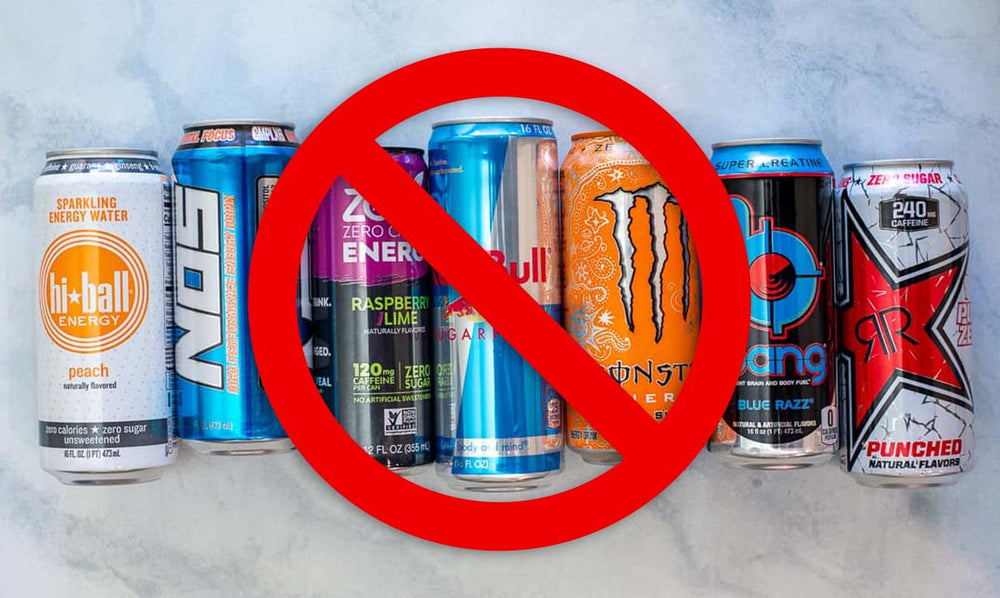Vacations are important for your physical and mental health. Research shows people who don’t take regular vacations are unhealthier, more depressed and less productive than employees who take time off to travel. Some experts believe businesses should include required time off or vacation planning as part of a performance review to ensure workers take vacation days.
Most people who don’t take their vacation days are worried that they can’t leave their work behind for long. Planning ahead for a vacation can ease your fears about work and give co-workers and bosses plenty of time to prepare for your absence.
Unlike France, China, Kuwait, Sweden, Mexico and the UK, the U.S. has no mandated number of vacation days for workers. Statistics show that 54 percent of U.S. workers who did receive vacation days from their employers didn’t use those days in 2017.
Travel Changes the Way You Think
Even if you are only able to travel a few miles, getting away from your daily routine will give you needed rest and relaxation. Having different experiences in a new setting will improve cognitive flexibility. Using your brain in a different environment encourages neuroplasticity and helps you think in clearer and more creative ways. The new sights and sounds you encounter when traveling can help you come up with new ideas for your business, hobby or even provide inspiration for a screenplay or novel.
Travel, especially international travel, makes you stronger emotionally and keeps you on your toes. When problems occur as you travel, you have to adapt and solve them on your own (or with minimal help); you won’t have co-workers or family there to help.
Being mugged in a country where you don’t speak the language forces you to think logically and resolve the problem without panicking. If you can take care of inconveniences and emergencies in a foreign country calmly, it will make solving problems at home much easier.
Travel promotes happiness by allowing you to live life just to enjoy it, instead of constantly focusing on work and responsibilities. Learning about different cultures, or even a different part of town, broadens your emotional and intellectual horizons.
You’ll become more flexible and understanding about lifestyles and customs outside your immediate circle. This knowledge helps you become more empathetic, and better able to relate to individuals who don’t share the same viewpoint. When you return home, you may even get along better with co-workers and friends after your new experiences. You may also discover new food, music or entertainment that will become a part of your daily life.
Visiting friends or family can bring back good memories and relieve the depression that comes from a monotonous daily routine. Relaxing and talking to good friends – old or new – will help you forget the stressors of home and office and let you recharge.
Break Your Routine and See the World
Being tied down to one place for months or years can cause you to become frustrated and depressed. New events lift your spirits and force you to engage with something other than a familiar routine. You can raise your self-confidence and enthusiasm by traveling, even if it’s just a day trip to the beach.
If you’re depressed (or just suffering from a case of the blues), it can lead to low self-esteem and make you think you can’t do anything new successfully. Traveling takes you out of your comfort zone and lets you see what you are capable of doing. When you travel, you’ll have the freedom to go where you want, when you want. Free from the restraints of work and family, you won’t be tied to a schedule, and you can think what you want. Depression and stress often stem from feeling as though you have no choice in your everyday life, and traveling gives you many choices.
You may neglect your mental, emotional and physical health to fulfill work obligations and other responsibilities. You may overeat, under eat, forget to exercise or have trouble sleeping from trying to do too much for too long. When you leave your home to go on vacation, you’re starting from “scratch” for a few days or weeks, so you can listen to what your body and mind need. You don’t need to force yourself into a “box” – you can be who you really are.
You may be so tired of your routine that you just want to get away for awhile, whether it’s to China to a city a few hundred miles from your home. Taking a vacation to escape your stressful job will renew your vigor for life, and you’ll return to work refreshed and calm.
Your life at work probably consists of sitting at a computer for a good portion of the day, which leads to weight gain and heart disease. When you’re on a mountain retreat vacation, you’ll wake up and walk outside in the fresh air and look at nature, instead of sitting at a desk with coffee and a doughnut and performing monotonous tasks.
You don’t need to work in an office to benefit from “getting away from it all.” Regardless of your lifestyle, regular vacations can make you feel better. A study conducted on farm and non-farm women in Wisconsin showed that the likelihood of stress and depression increased in women who hadn’t taken a vacation in two years when compared with women who had taken a vacation.
Traveling can help you find your way after a life crisis or transition. Experiencing another country or city can be just want you need after a divorce, job loss or other major event. Leaving old places and habits behind and exploring will help you enter a new life phase, with new interests and companions.
Traveling Helps Prevent Heart Disease
A study showed that traveling twice a year makes it less likely that women will have a heart attack. Women who traveled every six years or more had a greater chance of suffering from heart problems. Men who travel infrequently or not at all had a 30 percent higher chance of developing heart disease.
If you live in a region with harsh winters (or overcast weather year-round) you may experience depression due to lack of Vitamin D from the sun. Visiting a sunny destination can give your body the Vitamin D it needs. Spending time outdoors in fresh air is an antidote for sitting in an office staring at a computer screen.
Going to the beach is especially calming if you’ve been under stress for a long time. The fresh, salty air is cleansing, and can help you meditate and reflect.
Get Happy-Travel More
Vacationing twice a year also guards against depression and debilitating stress. The novelty and challenge of seeing new places and people may alleviate boredom, but it also perks up your spirit and helps you relax.
Taking a trip solo or with friends puts you in a great mood. You can laugh, have fun, try new foods, shop, sight-see, and meet new people. Having fun feeds your soul and makes you feel alive. You feel energized when you spend time in a new atmosphere, away from the drudgery of your regular schedule.
Travel can have a positive effect on your relationship with your spouse or Significant Other. Vacationing together takes you and your partner away from the stresses of everyday life and into a fun, adventurous atmosphere. You’ll become closer and may even reignite a romantic spark.. Even planning the trip and deciding what to do every day of your vacation can renew shared interests you’d forgotten about during the rat race of daily work and responsibilities.
Just anticipating your trip can make you happier, according to a UK study. The research also showed that you’ll feel better about your health and financial situation as well right before a vacation. Another study showed that people feel happier thinking about traveling than thinking about buying new possessions.
Make New Friends
You may feel stressed or depressed when you’re around the same people all the time, especially if you don’t have much in common with them. Even if you like the people around you, repeating the same social patterns day after day can cause frustration.
Traveling helps you interact with new people, from gas station attendants and waitresses to local artisans. You’ll encounter different types of people than you’re used to, learn new things, and maybe make a few new friends along the way. You may not get to see your new friends in person often if you meet them overseas, but you can keep in touch via social media, email and phone.
Minimizing Problems on the Road
Going on vacation relieves anxiety, but it can cause it when the trip isn’t planned well. If you are going on a sojourn overseas or a road trip across America, take time to plan the details months or even a year in advance. This will allay your fears about what to do if things go wrong. Once you get to your destination(s), you can always alter your plans if you feel comfortable.
Here are a few tips on how to plan your trip to reduce delays and other problems:
- Buy tickets for a flight that fits in with your schedule and body clock. The cheapest fare listed on an airline website may have inconvenient arrival and departure times that can cause you more stress, and that’s what you’re trying to avoid by going on vacation. If you need to rest for a day before or after traveling to adjust your body clock, book your airfare and sightseeing accordingly.
- Listen to a podcast or relaxing music on your flight or while waiting at the airport. It’s easy to spend the time worrying about your luggage, the weather, whether the flight will arrive late, etc., but worry won’t change the outcome. Spend your time constructively. If you’re feeling anxious, take a few deep breathes or strike up a conversation with another traveler.
- Familiarize yourself with travel protection offered with your credit cards. Most credit cards will cover travel-related issues, including lost luggage and trip cancellations. You should also look into travel insurance before your trip to give you peace of mind. If you know there is a safety net should problems arise, you will enjoy your vacation more.
You’re not being lazy or neglecting your work when you take a vacation. A vacation - or even a monthly road trip-is a necessary aspect of self-care, just like restful sleep or a balanced diet.
If you can afford a fancy European vacation or mountain-climbing expedition, go for it. Financially-challenged folks can still take a trip to the beach for the weekend and stay at a hotel instead of soaking in the sun and rushing back to the city. Your bank account shouldn’t be a deterrent to taking time off and enjoying yourself. As many studies show, regular vacations improve mental health for people from all walks of life.
Wheatgrass and A Healthy Lifestyle Relieve Stress
Whether you’re at home or on vacation, you need to exercise and eat whole foods to maintain emotional health. It’s fine to sample exotic foods while you’re on vacation, but make sure to stay active and balance high-calorie meals with healthier fare.
Taking a wheatgrass supplement is an excellent, all-natural way to reduce stress. Wheatgrass has magnesium, B-complex vitamins, Vitamins E,A,C and K and important minerals like potassium, zinc, selenium and manganese.
Happy Girl All-Natural Mood Enhancing Supplement, from Wheatgrass Love, has all the nutrients of wheatgrass, including amino acids and over 300 enzymes. The supplement also has a blend of gotu kola, ginger, green tea extract, white willow, Hawthorne berry, cayenne pepper and other herbs to naturally boost your mood and energy.
Happy Girl is a safe and effective addition to your healthy lifestyle. You can take it with you to work or when you travel. The special herbal formula is designed to balance a woman’s emotions, but men and teens can use it, too.
















